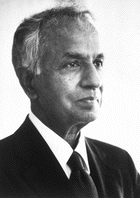A Quote by Andrea M. Ghez
How do you observe something you can't see? This is the basic question of somebody who's interested in finding and studying black holes. Because black holes are objects whose pull of gravity is so intense that nothing can escape it, not even light, so you can't see it directly.
Related Quotes
Black holes provide theoreticians with an important theoretical laboratory to test ideas. Conditions within a black hole are so extreme, that by analyzing aspects of black holes we see space and time in an exotic environment, one that has shed important, and sometimes perplexing, new light on their fundamental nature.
Macroscopic objects, as we see them all around us, are governed by a variety of forces, derived from a variety of approximations to a variety of physical theories. In contrast, the only elements in the construction of black holes are our basic concepts of space and time. They are, thus, almost by definition, the most perfect macroscopic objects there are in the universe.
Historical science is not worse, more restricted, or less capable of achieving firm conclusions because experiment, prediction, and subsumption under invariant laws of nature do not represent its usual working methods. The sciences of history use a different mode of explanation, rooted in the comparative and observational richness in our data. We cannot see a past event directly, but science is usually based on inference, not unvarnished observation (you don't see electrons, gravity, or black holes either).































